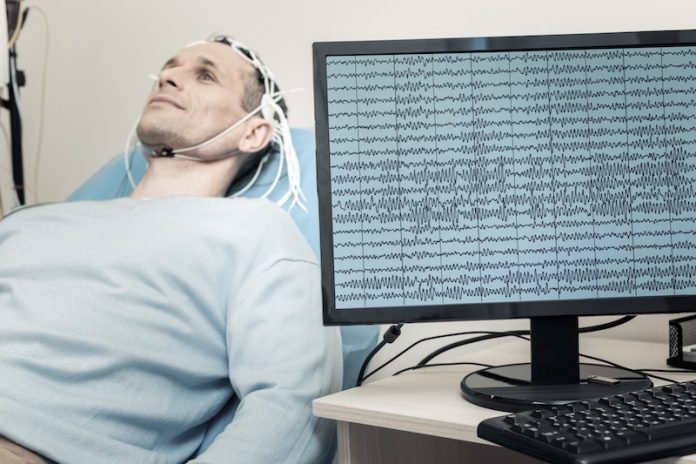
A pioneering study from the University of Tsukuba has revealed a remarkable correlation between brainwave activity and mood changes in individuals with depression.
Utilizing electroencephalogram (EEG) technology, the study offers a promising avenue for the early detection of depression—a condition that currently presents challenges in diagnosis and treatment.
The Science of Brainwaves and Mood
The study, published in Scientific Reports, found that a brainwave phenomenon called “phase resetting” can be a reliable indicator of mood changes in individuals experiencing depression.
Phase resetting involves the synchronization of brain waves from different regions of the brain. Interestingly, the occurrence of phase resetting varied with the intensity of the depressed mood at certain frequencies.
One Minute to Assess Mood
Participants were instructed to measure their EEG at home for just one minute each day over a period of two to four weeks.
By examining this data, the researchers were able to correlate changes in phase resetting with fluctuations in the participants’ mood.
The brevity of this one-minute test is particularly impressive, making it a feasible option for frequent monitoring.
A Step Towards Objectivity in Mental Health
One of the ongoing challenges in diagnosing and treating mental health conditions like depression is the reliance on subjective self-reporting by patients.
This study provides a significant leap towards objectivity by showing that a simple, one-minute EEG test could serve as an objective measure of changes in depressed mood.
Early Detection and Beyond
The implications of this research are far-reaching. Not only does it offer hope for early detection of depression, but the quick and affordable nature of EEG could make this an accessible tool for widespread use.
Furthermore, understanding the brain’s electrical activity related to mood could inform the development of new, targeted treatments for depression.
Looking to the Future
While further research is needed to solidify these findings and understand their broader applications, the study undeniably opens a new frontier in mental health research.
By facilitating early detection and enabling more objective assessment methods, the use of EEG technology could revolutionize the way we approach, diagnose, and treat depression.
If you care about health, please read studies that scientists find a core feature of depression and this metal in the brain strongly linked to depression.
For more information about mental health, please see recent studies about how dairy foods may influence depression risk, and results showing Omega-3 fats may help reduce depression.
The research findings can be found in Scientific Reports.
Follow us on Twitter for more articles about this topic.
Copyright © 2023 Knowridge Science Report. All rights reserved.



